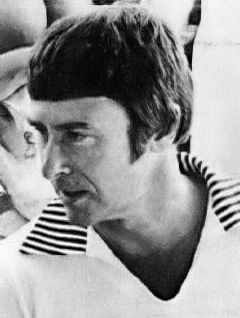A Quote by Samael Aun Weor
The strong tendency to blame others is a barrier, an obstacle for the comprehension of our own mistakes.
Related Quotes
Forgiving ourselves for all the woulda-shoulda-couldas in life, and sometimes forgiving others for actions that we feel undercut or undermine our good, can be very challenging. But forgiveness of the past and mistakes, our own mistakes as well as the mistakes of others, is imperative if we are to dwell fully in the present and experience the miracles that are only available to the forgiving and loving mind.
Discipleship is not limited to what you can comprehend – it must transcend all comprehension. Plunge into the deep waters beyond your own comprehension, and I will help you to comprehend even as I do. Bewilderment is the true comprehension. Not to know where you are going is the true knowledge. My comprehension transcends yours.
All of us are prone to excuse our own mediocre performance. We blame our misfortunes, our disfigurements, our so-called handicaps. Victims of our own rationalization, we say silently to ourselves, 'I'm just too weak,' or 'I'm not cut out for better things.' Others soar beyond our meager accomplishments. Envy and discouragement take their toll. .
By our attitude, we decide to read, or not to read. By our attitude, we decide to try or give up. By our attitude, we blame ourselves for our failure, or we blame others. Our attitude determines whether we tell the truth or lie, act or procrastinate, advance or recede, and by our own attitude we and we alone actually decide whether to succeed or fail.


































